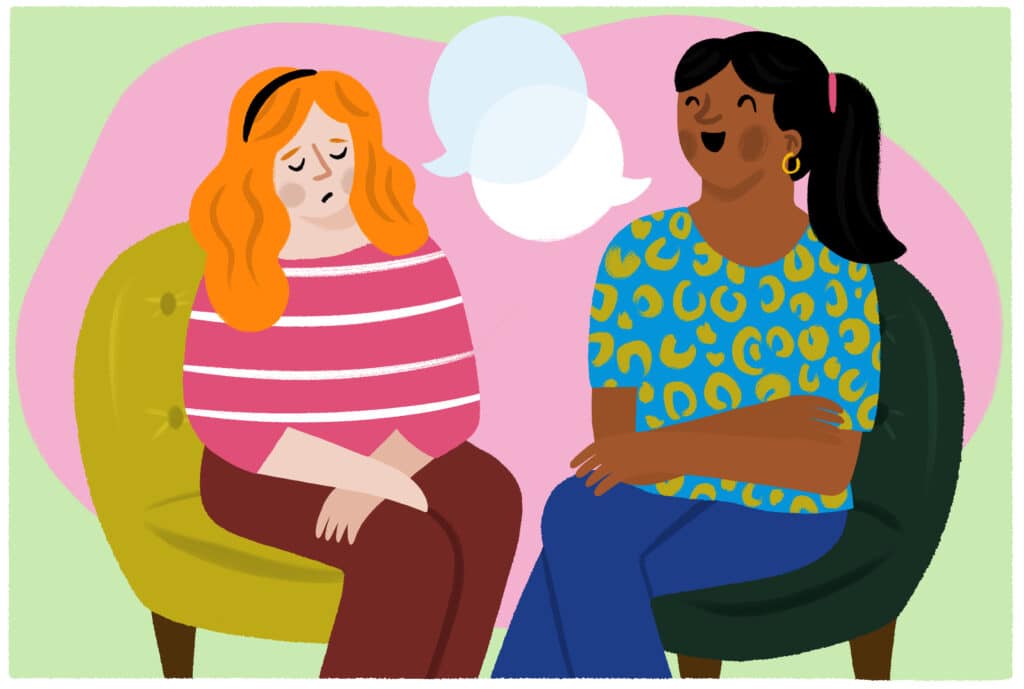
By Sarah Ludwig Rausch
While there’s less stigma around mental health disorders in general, there’s still plenty when it comes to attention-deficit/hyperactivity disorder, or ADHD. I found this out quickly when I was diagnosed with ADHD in my late 30s. My husband’s response to my diagnosis was: “But only kids have that!” One of my best friends completely dismissed it, saying: “Well, doesn’t EVERYONE have a little ADHD?” Others responded with skepticism or confusion.
As with many mental health issues, there are a variety of misconceptions surrounding ADHD. Most people don’t understand what ADHD really is. They don’t know it affects adults as well as children, or that brain scans actually show an ADHD brain has impaired activity compared to a more typical brain.
“Sadly, there is still a mighty strong stigma about having ADHD,” says Terry Matlen, LMSW, founder of ADDconsults and Queens of Distraction. “People think those with ADHD just need to ‘try harder;’ that they are lazy, incompetent, or just not very bright.”
In addition to the many struggles people with ADHD experience, Matlen says there’s an added layer of difficulty because it’s an invisible condition. Because of this, “So many of us—I have ADHD as well—are not taken seriously,” she explains.
Considering the potential for stigma and misunderstanding, how can you talk to other people about having ADHD, especially if you’ve recently been diagnosed?
Understand Your ADHD
Before you tell others about your ADHD, Matlen stresses how crucial it is to understand it — and how it impacts you. “I find that many adults who first get diagnosed want to tell the world about it—that now there’s something identifiable that explains their difficulty,” she says.
Instead, Matlen advises taking the time to explore your new diagnosis. How does it affect you emotionally? How can you rethink your perception of yourself now that you know you’re a person with an ADHD brain? “Let it sink in,” Matlen advises.
You may want to see a counselor to help you absorb your new diagnosis, Matlen says. She also recommends working with an ADHD coach, attending webinars and conferences, and joining support groups and organizations for adults with ADHD.
Read as much as you can about ADHD too, Matlen says. “Learning more about your own ADHD will help you in your relationships with others. You’ll be armed with more information about ADHD in general and its effect on you,” she says.
Decide Who to Tell
Once you feel confident about your diagnosis and your understanding of it, think about who you want to tell. For example, if you feel you need some changes at work to increase your productivity, you may want to tell your boss. “It’s best to ask for informal accommodations such as extra time getting projects done, or working in a less distracting environment,” says Matlen.
What about romantic and other close personal relationships? Matlen says it’s important to share your diagnosis with these people right away, “just like you’d share with them a medical condition that is worrisome to you and that could impact those around you.” The people you’re closest to will want to know about your ADHD so they can understand you and support you.
In other relationships, Matlen says you might want to share your ADHD symptoms instead of your ADHD diagnosis. For instance, you could say, “I don’t have a good sense of time, so I’m often late,” or “I have a tough time staying organized,” or “I get distracted easily.”
The bottom line? “You don’t have to reveal your ADHD unless you feel it’s necessary,” says Matlen. “You need to determine with whom you can feel comfortable disclosing your diagnosis — people you trust who will celebrate you for who you are, not the diagnosis you carry.”
Respond to Negative Reactions
Let’s say you get a skeptical or negative response from someone you’ve told about your ADHD. How should you respond?
“With calm!” Matlen exclaims. “This is a great opportunity to educate people about ADHD.” She suggests responding with something like this:
“Can I tell you a bit about ADHD? Lots of people believe articles they read online that are terribly misleading. Saying derogatory things about ADHD is very hurtful. We didn’t understand much about depression some years back, but now we know that it is a true disorder that is highly treatable. The same goes for ADHD. Can I share an article or book with you that explains this better? I appreciate your interest in learning more about it—it means a lot to me.”
What do you do if your partner is having trouble accepting or believing your ADHD diagnosis? If you’re in therapy, bring your partner along to a session and have the therapist talk about how ADHD affects partners, suggests Matlen. She also recommends reading Melissa Orlov’s book, The ADHD Effect on Marriage: Understand and Rebuild Your Relationship in Six Steps, with your partner.
Combat Misinformation About ADHD
How can you educate others in your life about ADHD? When discussions about invisible conditions such as anxiety, depression, or PTSD come up, “you could mention that ADHD fits in that category,” Matlen says. Maybe your friend or a family member deals with one of these mental health conditions. Talking about and empathizing with their condition could open the door for discussing your ADHD with them.
Make sure you’re prepared first though. “The more you educate yourself, the better you’ll be able to educate those around you,” says Matlen. She suggests practicing with someone you trust until you feel more confident in the way you explain your ADHD.
Resources to Help
Matlen recommends several resources that may help others understand your ADHD better:
- ADHD 2.0: New Science and Essential Strategies for Thriving with Distraction—from Childhood through Adulthood by Edward M. Hallowell, MD, and John J. Ratey, MD
- Driven to Distraction: Recognizing and Coping with Attention Deficit Disorder by Edward M. Hallowell, MD, and John J. Ratey, MD
- Children and Adults with ADHD (CHADD), a national non-profit organization that has support meetings in many large cities
- Attention Deficit Disorder Association, which has virtual support groups, including one for non-ADHD partners
Sources:
ADDitude: The Neuroscience of the ADHD Brain






